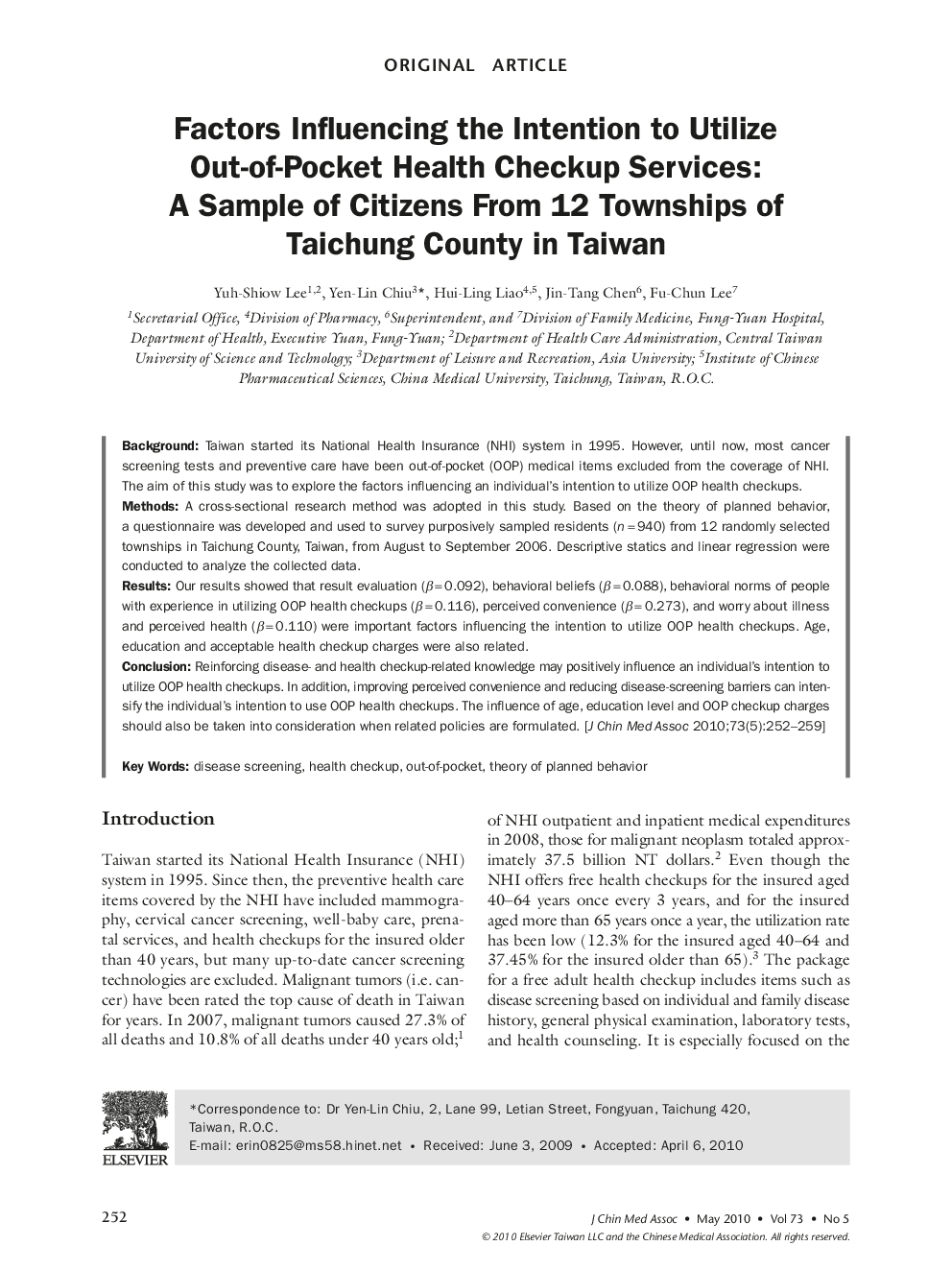| Article ID | Journal | Published Year | Pages | File Type |
|---|---|---|---|---|
| 3476946 | Journal of the Chinese Medical Association | 2010 | 8 Pages |
BackgroundTaiwan started its National Health Insurance (NHI) system in 1995. However, until now, most cancer screening tests and preventive care have been out-of-pocket (OOP) medical items excluded from the coverage of NHI. The aim of this study was to explore the factors influencing an individual's intention to utilize OOP health checkups.MethodsA cross-sectional research method was adopted in this study. Based on the theory of planned behavior, a questionnaire was developed and used to survey purposively sampled residents (n = 940) from 12 randomly selected townships in Taichung County, Taiwan, from August to September 2006. Descriptive statics and linear regression were conducted to analyze the collected data.ResultsOur results showed that result evaluation (β = 0.092), behavioral beliefs (β = 0.088), behavioral norms of people with experience in utilizing OOP health checkups (β = 0.116), perceived convenience (β = 0.273), and worry about illness and perceived health (β = 0.110) were important factors influencing the intention to utilize OOP health checkups. Age, education and acceptable health checkup charges were also related.ConclusionReinforcing disease- and health checkup-related knowledge may positively influence an individual's intention to utilize OOP health checkups. In addition, improving perceived convenience and reducing disease-screening barriers can intensify the individual's intention to use OOP health checkups. The influence of age, education level and OOP checkup charges should also be taken into consideration when related policies are formulated.
